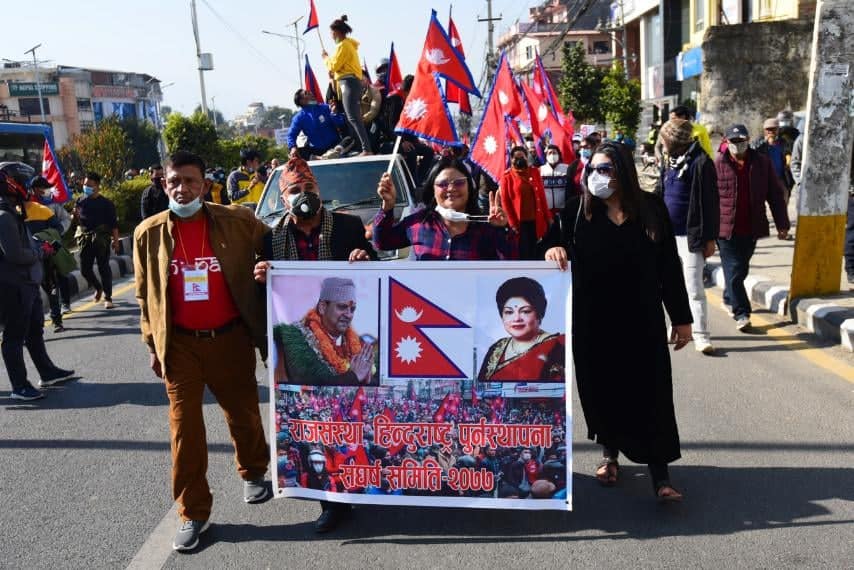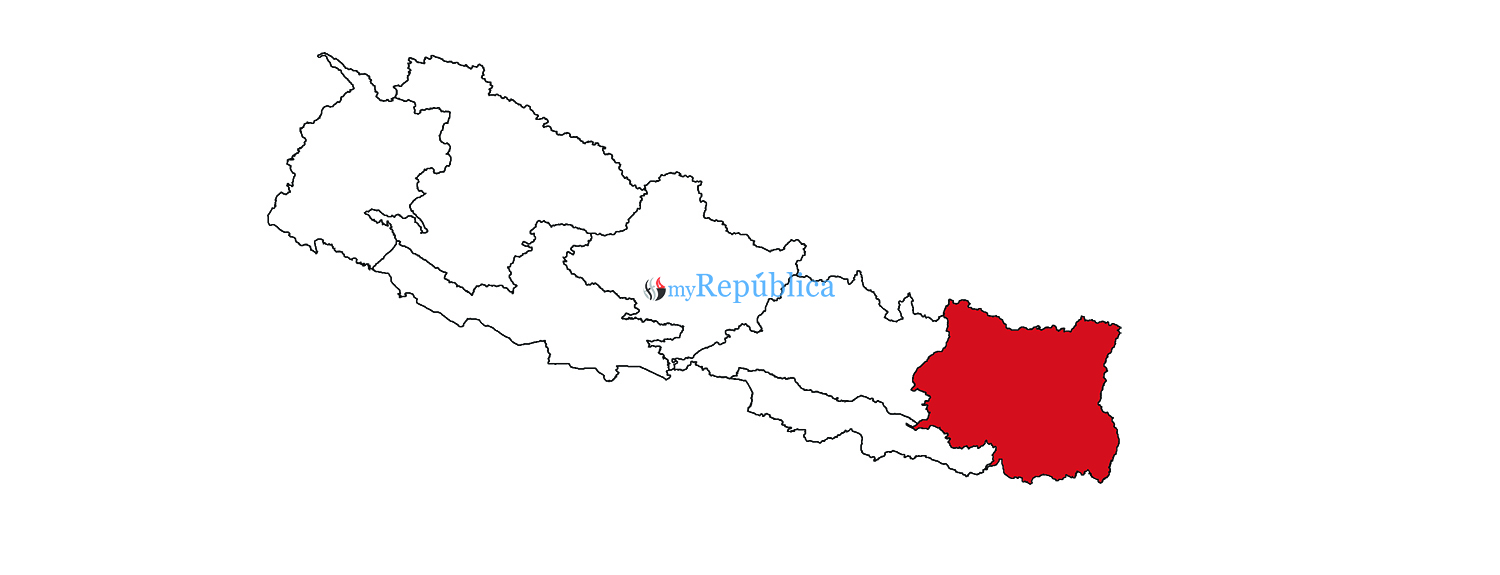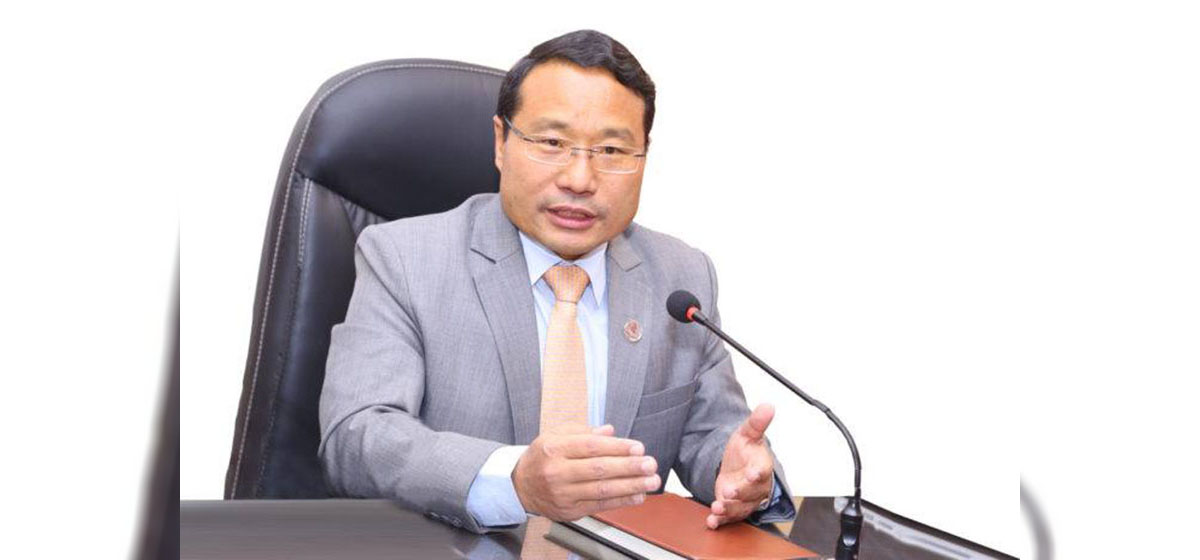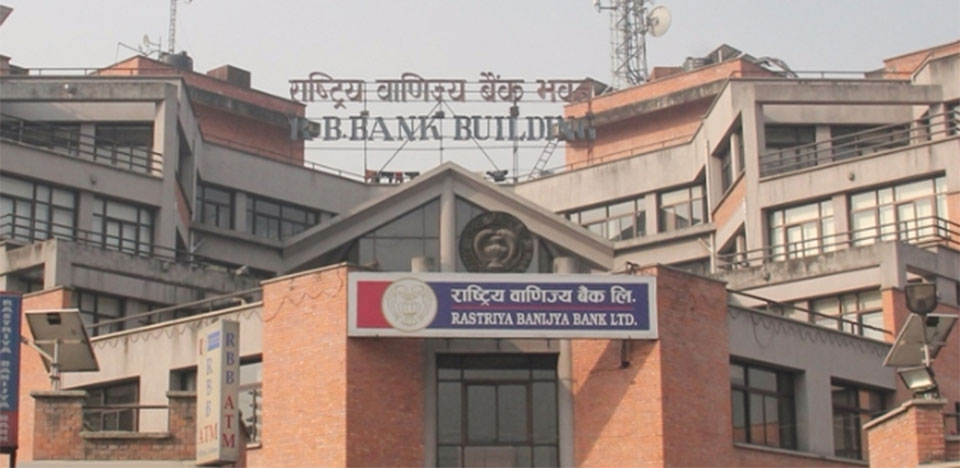
OR
Do not bring Hinduism in politics
Published On: February 25, 2021 07:00 AM NPT By: Dr Surendra Singh Rawal

When we proclaim our country a Hindu state, we blatantly violate principle of democratic republicanism. One of the leading causes of the world's deadliest atrocities in the past is the politicization of religion.
Once again, we hear voices demanding Nepal to be declared as a Hindu state. I understand many of our Hindu sisters and brothers revere their religion, and, being a Hindu majority, they want their state to be declared as per their faith. This sounds good. But democracy is not the 'winner take all' system, the minority rights must be protected while the majority rules. When we proclaim our country a Hindu state, we blatantly violate that bedrock principle of democratic republicanism. Equally, we need to note that one of the leading causes of the world's deadliest atrocities in the past is the politicization of religion.
Philosophy of Hinduism
Hinduism is a very diverse and all-encompassing religion; anyone can choose their own God and belief from the multiple choices available to them. One can be a Hindu believing in one God or many Gods or even no God. Various Maharshis interpreted and reinterpreted Sanatan Dharma since the Vedic age. In due course of time, many different beliefs and sects branched out. Buddhism became accessible to all because one didn't have to depend on a priest for their rituals, and anybody could practice it despite one's caste or creed. The democratization of Karma in Buddhism, having a good intention is more important than actions, made the religion easily reachable to everybody.
Hinduism is so vast that there is no mandatory prerequisite to be a Hindu, not even a belief in God! Hinduism believes that religion is profoundly a personal matter. Unlike other major religions, Hindus don't have to demonstrate their faith by any noticeable symbol, incorporate their individual identity in any collectivity, and worship in a particular time of the day or frequency. A Hindu can remain within the spectrum of Astika and Nastika, meaning one can still become a Hindu even if she is an atheist (Jainism), an agnostic (Buddhism), theist (Advaita and Dvaita), or a materialist (Charvaka School).
Hinduism's fundamental philosophy is tolerance and acceptance, the essence of which is captured in the phrase Vasudhaiva Kutumbakam—all world is but a family—and we are the children of the Almighty. Looking back to the long history of its development, we can find that Hinduism assimilated animist or tribal religions of ancient times and various trajectories of its mainstream. The philosophy of Hinduism is such that it can even absorb any other religion without any difficulty. That is why Dada Vaswani, a Hindu spiritual leader, calls Hinduism 'a fellowship of faith,' 'a federation of philosophies,' and 'a league of religions.'
Our Hinduism is not a political Hinduism or Hindutva. As many Hindus have their own personal God (Ishta Devata), our Hinduism itself is a personal affair, which should not be interfered with by any means. We are a free Hindu who wants to think about Purusartha, Moksha, Brahma in the way our 'Atman' believe. We learn from Vedas and Upanishad. Aitareya Upanishad of Rigveda says 'Pragyanam Brahman,' which means knowledge is everything. We reject mandated prescriptions to our faith by a state authority or a political party. If we are a truly spiritual person, we don't want to show others our religious practices or, in other words, we don't want to be a hypocrite. Therefore, no one should try to drag religion from our private sacred place to an open space of 'dirty' politics.
Religious experience is an individual experience in Hinduism and varies from a person to person. Hindu faith emphasizes reason and intuition. Therefore, any spiritual perception requires testing through logic. Whereas, Semitic faiths consider their scriptures as of divine origin and beyond contestation. Hinduism is not just a religion but a civilization and a way of life. Hindus search for the light beyond the darkness (Astoma Satgamaya). Vivekananda revolutionized Hinduism in modern times and said 'Ekam sat vipra bahudha vadanti,' meaning there is only one truth, but sages call it by various names. He also saw faith through humanism and believed it is an insult to preach religion to a hungry person. Vedanta's concept emphasizes the welfare of all human beings (Bahujan Sukhaya, Bahujan Hitaya).
Hinduism and politics
Nepal has been a Hindu predominant country for a long time, but it was declared a Hindu state only a brief period in the past due to the interest of the ruler of the day. Hindus did not face any problem practicing Hinduism when Nepal was not declared a Hindu state.
Some believe Hinduism in Nepal would be a stepping stone for the monarchy. As per their strategy, Hindu Nepal is a means to achieve monarchy's political end. However, the fact is that neither all Hindus want the monarchy, nor all non-Hindus reject it. There is a deep-seated misbelief among some Nepali people that Hinduism and monarchy are two sides of the same coin, which is not true. Although dwindling, currently, there are forty-four monarchies globally, with or without the state embracing religion. Take the case of the UK, Japan, Bhutan, Brunei, Thailand, Saudi Arabia, Oman, Belgium, Denmark, the Netherlands, Norway, Spain, Sweden, and so on. And, there are also countries with state religion but without monarchies.
Hindubadis in India have largely shaped the current demand of the Hindu state in Nepal. How does India's Hindutva's grand strategy of assimilating the entire region to one big Bharat (India) correspond with Nepali Hindubadis’ desire for a sovereign independent Hindu country? This is the puzzle that forces Nepali patriots to scratch their heads.
Vinayak Damodar Savarkar, an Indian independence activist and politician, believed in Hindutva, not Hinduism, as a unifying cultural construct of all those who belong to Bharatvarsh. In other words, it was a political ideology looking for establishing the value, way of life, and hegemony of Indian Hindus. Savarkar argued that a Hindu is one who considers India to be his matrbhumi (motherland), pitrbhumi (the land of his ancestors), and punyabhumi (holy land). His vision of the Hindu nation is rooted in an undivided India (Akhanda Bharat) extended across the entire Indian subcontinent. And he claimed that Hindu is an Indian Nation and Hindutva an Indian Nationalism.
In his book Why I am a Hindu, Shashi Tharoor argues that "Hindutva actually works by replacing hatred for the British with hatred for a minority." This would be a recipe for the destruction of unity in any country. Tharoor also maintains that Hinduism is an inward-directed faith focusing on self-realization, whereas Hindutva is an outward-directed concept for a political purpose.
This intermixture of politics and Hinduism is dangerous and takes away religious freedom of the individual from their heart and mind to the custody of the state. Hindutvavadis don't believe in Individualism and social-contract theory, nor in democracy, socialism, communism or capitalism. Instead, in the historian Manu S Pillai's words, they want to run state affairs in Hindu 'dharmocracy.'
The second chief of the Rashtriya Swayamsewak Sangh (RSS), Madhav Sadashiv Golwalkar's Bunch of Thoughts, with the similar aspiration of Sayyid Qutb's Milestones, advocate cultural nationalism rejecting territorial or civic nationalism. The RSS and Hindutvavadis share many similarities with Muslim modernists in the Middle East and South Asia, including their yearning for so-called 'glorious past.' BJP politicians such as Yogi Adityanath and Rajnath Singh have argued against secularism and advocated for Hindu Nationalism with the ulterior motive of establishing Bharatvarsha.
The revisionist Hindutvavadis are aspiring to bring Buddhist and Hindu majority nations in the region, namely Bhutan, Nepal, and Sri Lanka, under the umbrella of Bharatvarsh. After picking the low-hanging fruits, their next desire would be to expand to the rest of the region. The recent news about Indian Home Minister and senior BJP leader Amit Shah's plans to expand the BJP footprint and their party-led government in Nepal and Sri Lanka perfectly fits in this grand design.
Case of Nepal
Nepal is an independent and sovereign Hindu majority country. If we look through sociological and anthropological perspectives, Hinduism in Nepal is different from Hinduism in India and is an amalgam of local culture, traditions, and ethnicity. Hinduism seamlessly blends in the diversity of Nepal. Trying to follow the Indian example of BJP stirring up Hindu sentiments will be disastrous path towards fundamentalism. All kinds of fundamentalists are dangerous, whether it is Islamist, Christian, Buddhist, or Hindu. We should be against associating religion with politics, whether it is monarchy or republicanism. Declaring a state religion is terrible; and, the emotional blackmailing of Hinduism for political advantage by any political party or individual is immoral.
Nepal's constitution has granted the right to choose one's religion. Above all, being a Hindu, we could be theist, agnostic, or atheist. We don't need to demonstrate our religious beliefs to anybody; it is our very personal matter. Nobody can force someone to adopt particular faith, and even the constitution forbids proselytization. If declaring a Hindu state could create a utopian society, why would not Narendra Modi's BJP government try to make India a Hindu country, when they are at the government's helm for so long? This is a crucial question to ponder. Once a state embraces one particular religion, it segregates others with different faiths. The very thought of one specific religion as superior to others is scary. Finally, although religion and politics are essential aspects for humankind, the cocktail of the two could be a dangerous admixture for the devastation of any heterogeneous society.
You May Like This

Why Federalism has Become Risky for Nepalese Democracy
The question arises, do federal or unitary systems promote better social, political and economic outcomes? Within three broad policy areas—political... Read More...

Nepal's Forests in Flames: Echoes of Urgency and Hopeful Solutions
With the onset of the dry season, Nepal's forests undergo a transition from carbon sinks to carbon sources, emitting significant... Read More...

'Victim blaming'- Nepali society's response to sexual violence
Multiple studies show that in most sexual assaults, the attacker is someone known and trusted by the victim. ... Read More...




Just In
- Rupandehi District Court orders to release Dipesh Pun on a bail of Rs 400,000
- Teachers’ union challenges Education Minister Shrestha's policy on political affiliation
- Nepal sets target of 120 runs for UAE in ACC Premier Cup
- Discussion on resolution proposed by CPN-UML and Maoist Center begins in Koshi Provincial Assembly
- RBB invites applications for CEO, applications to be submitted within 21 days
- Telephone service restored in Bhotkhola after a week
- Chemical fertilizers imported from China being transported to Kathmandu
- Man dies in motorcycle accident in Dhanusha
















Leave A Comment